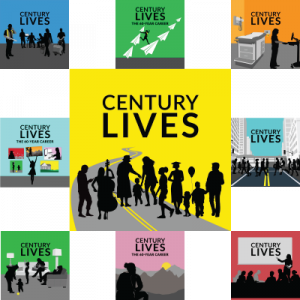Century-long lives are here. We’re not ready.
In the United States and beyond, 100-year lives will be common for those born today. Yet our institutions, economic policies, social and cultural norms have not kept pace. Through research, education/training, and out- reach, Stanford Center on Longevity (SCL) helps shape individual, community and social choices to support lives that are longer, healthier, and more rewarding. We envision a future in which all people, regardless of socio-economic status, can make the most of the advantages afforded by increased lifespan—resulting in lives infused at every stage with a sense of belonging, purpose, and worth.
OUR WORK
SCL advances a research-driven agenda that showcases the opportunities created by increased longevity, identifying actionable, evidence-based steps for enhancing the quality of longer lives from birth until death. We demonstrate the economic value of early- and mid-life interventions—underscoring the immense benefits of acting early and investing strategically. We also address longstanding race- and class- based disparities in healthcare, education, housing, and other social goods that hinder opportunities for all Americans to experience longer, healthier lives.

Increased longevity, one of the most profound transformations of the human experience, calls for equally momentous and creative changes in the ways we lead these 100-year lives, at every stage. We can meet challenges that longevity creates if we act now.
Looking for ways to improve your life right now? For all of the latest research and recommendations on sleep, nutrition, exercise, cognition and more, check out Stanford Lifestyle Medicine.
MAKING AN IMPACT
 THE NEW MAP OF LIFE IMPACT FELLOWS PROGRAM
THE NEW MAP OF LIFE IMPACT FELLOWS PROGRAM
In 2019, a cohort of fellows was appointed for a two-year term and charged with producing critical reports about nine domains that require major change to optimize long lives. In this phase, a new cohort of fellows is charged with building on the first phase by identifying and evaluating specific ways to improve century-long lives. For example, Apoorva Rangan and her mentor, SCL co-director Deborah Kado, a professor of medicine specializing in geriatrics, are working together to redesign medical school curricula to include more geriatric training. Currently, medical students receive almost none.

LONGEVITY DESIGN CHALLENGE
Now in its 10th year, the Stanford Center on Longevity Design Challenge is an annual global competition that provides promising designers with a path to drive change in the world.

CENTURY SUMMIT
In this annual convening, we ask smart, creative and innovative people tough questions surrounding the quest for healthier, happier, and more productive life spans.

LONGEVITY TRANSITIONS SALONS
The Longevity Transitions Salon series features leaders from a wide range of fields who created new career paths and continue their contributions to society.
CHANGING THE NARRATIVE
SCL continues to a be a leader in the public discussion on the issues of longevity. We are the ‘go-to’ for journalists working at major outlets across the country—and around the globe. Below are just a few of the articles in which SCL experts and reports were recently quoted and/or cited.

CENTURY LIVES PODCAST
Do rules created when most people lived only to 50 or 60 still make sense when more and more people live to be 100? Longer lives are, at once, among the most remarkable achievements in all of human history and the greatest challenges of the 21st century. How can we ensure that our lives are not just longer, but healthy and rewarding as well?
Century Lives seeks answers to theses questions by weaving together expert insights with the experiences of real people across the country, putting a human face on aging in all its complexity.
Latest Episode
STAY INFORMED
Subscribe to our Longevity Briefing newsletter

By submitting this form, you are consenting to receive marketing emails from: . You can revoke your consent to receive emails at any time by using the SafeUnsubscribe® link, found at the bottom of every email. Emails are serviced by Constant Contact












